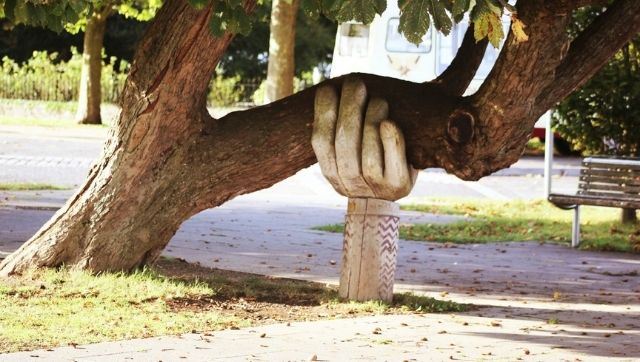*Here is my contribution to this book of sermons by young preachers. You can still buy digital copies of the book from Apple books, but otherwise I believe it has gone out of print.
Scripture
Sermon
The Israelites are not the best-behaved group of chosen people one could imagine. When their story begins in Exodus, they are enslaved in Egypt, groaning under the weight of bondage and oppression. God hears their cries and frees them—and that is where the trouble begins.
God leads the Israelites out of Egypt: they safely cross the Red Sea and watch the Egyptian soldiers get swept away. But when they turn around and see the desert in front of them they promptly tell Moses he should have let them stay in Egypt. For surely they have been brought to this place only to die from lack of food and water.
God hears their complaints and provides sustenance for their desert journey. Manna shows up on the ground every morning and water springs forth from a rock. It is miraculous and impressive. There is ample proof of God’s provision. But God makes even more promises: freedom, good health, success in military endeavors, and a home in the Promised Land. It is truly everything they could want. Yet, in response, the Israelites create a false god in the form of a golden calf, because Moses was on the mountain longer than expected, and they feared God had already abandoned them.
And this seems to be the final straw. God has had enough and tells Moses to take the people and continue traveling without God, who will not be going any further. Surely, God is too much for these people.
The Israelites are not the wisest bunch and it’s easy to see why God might be inclined to send them along on their own. But when I look at the world today, at the people we have become, I wonder if we are any better. We also wander in a desert, one not made of sand, but one made of war, genocide, and terrorism. We wander in circles around public policy and international politics, questioning where we are supposed to be, what the Promised Land might look like and if we will ever see it. The presence of God is in our midst, but we see conflict and natural disasters and ask aloud if we have been brought to this time and place only to die from lack of food and clean water. And like the Israelites, we know what God requires of us, yet we continually lift up other gods, claiming our God is too far away, too uninvolved. Surely, if we bow down to money, power, or hard work, we can build the kingdom more effectively.
I particularly identify with Moses in this scripture passage. In the middle of a desert, fearing abandonment, surrounded by fickle people, Moses confronts God and questions God’s faithfulness. Moses, who has an extremely close relationship with God, doubts whether or not God will follow through on the promises made to the Israelites. In the midst of the desert of bad news and human destruction that is shown on the news every night, in the midst of a country divisively split along ideological lines, in the midst of a world that distorts humanity, I wonder if God is here. I, like Moses, wish to see God’s face. I know our God is faithful, but in the face of so much disaster in our world, so much destruction, I, too, wonder if God really keeps promises.
It would be easier if I could know exactly where God is and what God is up to at every moment. But this story reminds us that God doesn’t work that way. God promises presence and goodness, mercy and graciousness. But there is always mystery to God’s identity: “I will be gracious to whom I will be gracious, and will show mercy on whom I will show mercy. I will be faithful and go forward with you, and you can see me from behind: you can see the good news I leave in my wake, but you will not know what I will do before I act.”
It would be easier if we could see God coming, if we could know when God is about to clean up the messes we’ve created. If we could know when God is about to act and do something incredible, we could be ready and we could notice. But God acts in God’s own time and in God’s own way. It is not God’s responsibility to make sure we notice what God is doing in the world— it’s our job to look for the good news in our midst. We know God is faithful, going out ahead of us, so it is our duty as Christians to go out and search for God’s presence. It would be easier if we could know exactly where God is going, but as this passage reminds us, we only get to see God’s wake.
Too often we forget that seeing God’s back means that God has gone ahead, preparing the way for us. We do not go forward alone. Rather, we walk into a future where God is already present, creating good news in the midst of bad news, working miracles in the face of destruction. It is our job to look for signs of where God has been, and the miracles left in God’s wake. Amen.




